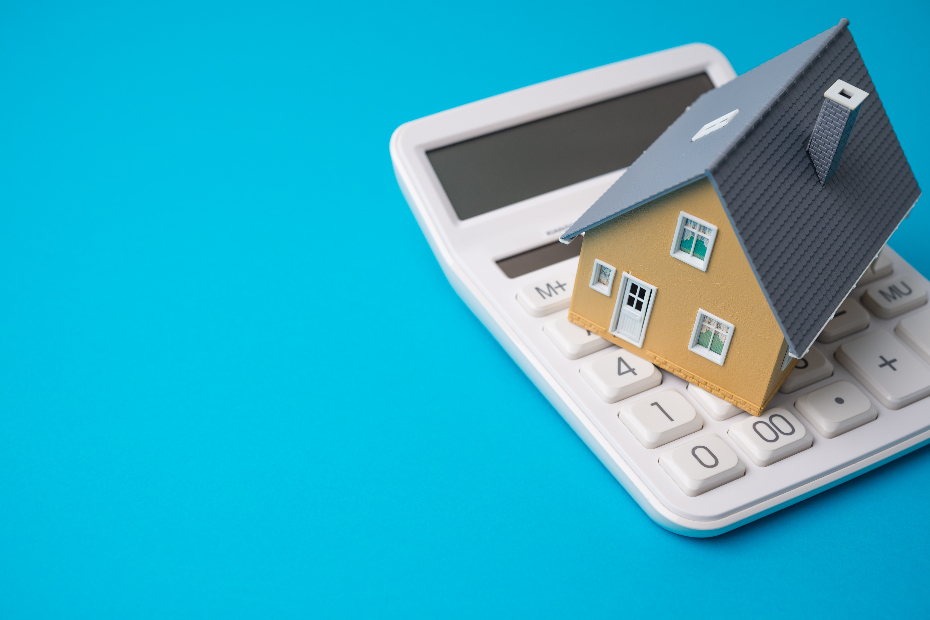This article has been compiled from “Planning ahead for your personal treasures,” featured in Perspectives Volume 2, Issue 2, Fall 2013 (page 3), and “Keeping your vacation property in the family,” featured in Perspectives Volume 1, Issue 1, Summer 2011 (page 25).
Whether jewellery or art, classic cars or antiques, wine, coins or otherwise, many individuals have a selection of cherished personal items. These belongings often have a long-standing significance within the family, are the result of a dedicated hobby, or represent decades’ worth of time and resources in collecting. And while most individuals associate a value — whether sentimental, monetary or both — with their treasured items and the history behind them, some unfortunately overlook the importance of preserving that value through to the next generation and planning ahead for personal property from an estate perspective. In fact, when many individuals think of estate planning, the primary focus is often on financial assets, but it’s equally important to consider what the best approaches may be for incorporating collectibles and other personal treasures into an estate plan. By giving these items special consideration when preparing an estate plan, it helps to ensure the transition of valued possessions is as smooth as possible, in accordance with wishes and intentions, so that they can enrich the lives of the next generation of owners and collectors.
Using value as a starting point
Within an estate, it’s fairly common for personal property to be the components individuals have the most uncertainty about when it comes to value. While many individuals often know their items are valuable to some degree, they may not have a clear idea as to what the precise worth is. From a planning standpoint, this can create uncertainty and issues determining who should receive personal treasures and how they should be passed down, especially when individuals feel strongly about ensuring they treat children and other beneficiaries equally in both the wealth and personal property they pass down, and aim to structure their plans in a way that promotes equality. To help facilitate the equal division of all property and assets among the next generation, hiring a professional appraiser for items like antiques, jewellery and collectibles can be very helpful to determine accurate values, which can then be a reliable catalyst for decision-making.
Beyond the direct impact on promoting equality, other main benefits of personal property valuation include:
- Knowing the value for insurance coverage purposes.
- Gaining a clearer picture on which assets to sell, should an individual think his or her estate will need liquidity (the availability of liquid assets, such as cash, to cover estate-related taxes, expenses and any debts).
- Knowing the value of the donation and thus any potential tax credit, if the plan is to donate an item to charity.
- Assisting in the facilitation process of obtaining advice from a qualified professional on the tax implications of gifting or selling personal property.
Tax considerations for personal property
Generally, when individuals pass away, they are deemed to have disposed of all of their assets — including personal possessions — immediately before their death at fair market value. In certain circumstances, there may be tax-deferral opportunities, such as leaving personal assets to a spouse. If an individual is the last-surviving spouse or leaves the assets to a non-spouse, however, this may trigger a capital gain or loss on the personal property upon death. From a tax perspective, this highlights another important reason to carry out thoughtful and proactive planning for all forms of personal property to help minimize tax consequences and avoid unnecessary expenses to the estate.
The potential tax consequences are another reason that knowing the value of items and collections is beneficial, as it helps guide what the most appropriate estate-planning options may be. Some collectors unfortunately fail to realize the value of their items and thus don’t make specific provisions in their Wills. On the other hand, some do know the value of their property and the potential tax liability, so they omit it from their Wills due to concern around the tax bill that may result if the assets pass through their estate. What’s crucial to recognize, however, is that in this type of situation, the estate executor could be held liable for the tax that is not reported by your estate.
Categories of personal property
In general, personal property is divided into two categories for tax purposes: personal-use property and listed personal property, each with its own tax rule.
Property type | Description | Tax rule |
|---|---|---|
| Personal-use property |
| Taxable capital gain when sold/deemed disposed of at a gain, provided the proceeds are greater than $1,000. Any losses realized on disposition cannot be used to offset capital gains. |
| Listed personal property |
| Taxable capital gain (loss) when sold/deemed disposed of provided proceeds are greater than $1,000. Any taxable capital gains on listed personal property can be offset by a loss realized on listed personal property. However, a loss on this type of property cannot be used to offset any other type of gain. |
Note: The tax rules and regulations for personal property are complex and can result in an income tax liability regardless if an individual gifts assets during their lifetime or upon their death. As such, it is important to consult with a qualified tax advisor who can advise on how the rules may apply to or affect your estate and to help you make informed decisions.
Charitable donations of personal property
Depending on intentions or the type of property (for example, jewellery, art or furniture), some individuals may wish to donate personal property to charity. In considering this option, one of the first steps individuals should take is to ensure the charitable organization is willing and able to accept the property that is intended to be donated before making a lifetime gift or including instructions for the donation in your Will. Once that has been confirmed, it’s likewise important that individuals seek guidance from a qualified tax professional to determine the potential tax consequences of the donated gift. This is because the disposition of these items may trigger a taxable capital gain that would be included in your income in the year of the gift. Whether it’s a donation during your lifetime or upon death, the individual or the executor may be able to claim a non-refundable charitable tax credit for the amount of the gift. Note: The credit is normally based on the fair market value of the donation, so one or more independent professional appraisals is highly recommended.
Did you know?
Special tax rules apply when selling or donating “certified cultural property” to an institution or public authority designated by the Minister of Canadian Heritage. Certified cultural property is an object or collection that has been deemed by the Canadian Cultural Property Export Review Board to have outstanding significance and national importance to Canada.1 Talk to your qualified tax and legal professionals about donating property of this kind and to ensure your Will contains the wording appropriate to convey the property to your chosen recipient.
Accounting for sentimental value and preserving family harmony
When planning for the future of your personal treasures, it’s important to consider the emotional impact among family members and heirs. There are a range of factors that may affect how others within the family feel about the possessions being passed down, including the type of item it is, whether it’s a family heirloom, if it’s a hobby or item a child is particularly interested in, or if more than one heir has a vested interest in the same item.
With this in mind, individuals should aim to strike the right balance to navigate planning in a way that is most appropriate from a tax perspective and that fulfills their own personal wishes and intentions, but at the same time takes into account the impact of decisions on family and heirs. Beyond monetary value, the potential strong emotional and sentimental values drive home the the importance of having conversations with family members and beneficiaries in advance, so they understand your wishes, intentions and reasoning for how cherished items will be distributed, and so there are no unexpected surprises down the road. Leaving accurate, detailed information related to personal property to accompany a Will can also help to alleviate potential stress for executors and decrease the likelihood of family uncertainty or conflict in estate administration. Details should include:
- An inventory of personal property and where items can be found
- Original purchase documents and receipts, if available
- Certificates of authenticity, if applicable
- Most recent appraisals
- Insurance policies for items
- Instructions for transporting and storing, and names of specialist packers and movers
Considerations for cottages, vacation homes and other secondary properties in Canada
With one in five Canadian family units owning secondary residences or vacation properties,2 making decisions for how to keep these retreats within the family for generations to come, as well as the most effective way to achieve that, is something more individuals are and will be faced with over the coming years. Without proper planning your beneficiaries could be confronted with a large tax bill at death from both probate and the capital gains tax payable.
Regardless of whether individuals wish to give the property during their lifetime or in their Will, forward thinking and planning can go a long way in helping to identify the most appropriate approaches from a capital gains tax perspective and to streamline the transition. The following are some key aspects and potential options individuals may wish to consider.
- Giving it to family now. While transferring the property now means you will be responsible for any taxes on the gains up until this point, it may be advantageous if the value of the property is expected to increase in the future. In doing so, future capital gains would be taxable to family members, presumably at a much later date if the intention is to keep the property within the family. This option may also offer the benefit of avoiding probate fees. (Probate is the legal proceeding whereby the Will of a deceased person is approved by the courts in the province or territory the individual resided in. Probate fees vary by province or territory and are either a flat fee or based on the size of the estate.)
- Transferring it into a family trust. A trust can be a vehicle for holding and passing on family property that allows the trustee to maintain control over how funds and property are dispersed. Within a trust, the individual giving the property (the creator of the trust, called the settlor) names a trustee, who manages the trust on behalf of the beneficiaries. This option may promote the preservation of family harmony, as it enables individuals to establish formalized rules for the usage, upkeep and succession of the property held by the trust. When the property is transferred into a trust, it triggers a disposition at current fair market value, the same as with gifting it, so the individual transferring it would be responsible for the taxes on capital gains in the year transferred. Within a trust, there is also a deemed disposition of the assets in the trust at fair market value every 21 years at which time taxes on any accrued gains must be paid.
- Creating a co-ownership agreement. This is a legal document that sets out the ownership rights where multiple individuals are to be named as beneficiaries of a property. This type of agreement can present an effective way to formalize the rules for usage, maintenance and paying expenses, which unfortunately can be the source of conflict when secondary properties are passed down within the family and these aspects aren’t discussed and organized beforehand. As part of this agreement, it may be worthwhile to set aside a vacation property fund (if a family trust is established, additional funds can be allotted for ongoing carrying costs and future taxes). This can also be achieved through a testamentary trust in your Will.
- Purchasing life insurance to cover tax costs. The costs of carrying life insurance can be high, but the tax costs on properties can be even more significant. If a property is transferred to a beneficiary upon the owner’s death, life insurance on the original owner may be an effective method to handle the capital gains, as it creates a payout source for the anticipated taxes payable. Within many families, it’s common for family members who will receive the full value of the property to cover the insurance premiums, as they will be the ones who will ultimately benefit. These types of insurance payouts can also be used to help fund ongoing operating and maintenance costs.
References:
RBC Wealth Management is a business segment of Royal Bank of Canada. Please click the “Legal” link at the bottom of this page for further information on the entities that are member companies of RBC Wealth Management. The content in this publication is provided for general information only and is not intended to provide any advice or endorse/recommend the content contained in the publication.
® / ™ Trademark(s) of Royal Bank of Canada. Used under licence. © Royal Bank of Canada 2024. All rights reserved.
This article is intended as general information only and is not to be relied upon as constituting legal, financial or other professional advice. A professional advisor should be consulted regarding your specific situation. Information presented is believed to be factual and up-to-date but we do not guarantee its accuracy and it should not be regarded as a complete analysis of the subjects discussed. All expressions of opinion reflect the judgment of the authors as of the date of publication and are subject to change. No endorsement of any third parties or their advice, opinions, information, products or services is expressly given or implied by Royal Bank of Canada or any of its affiliates.



















